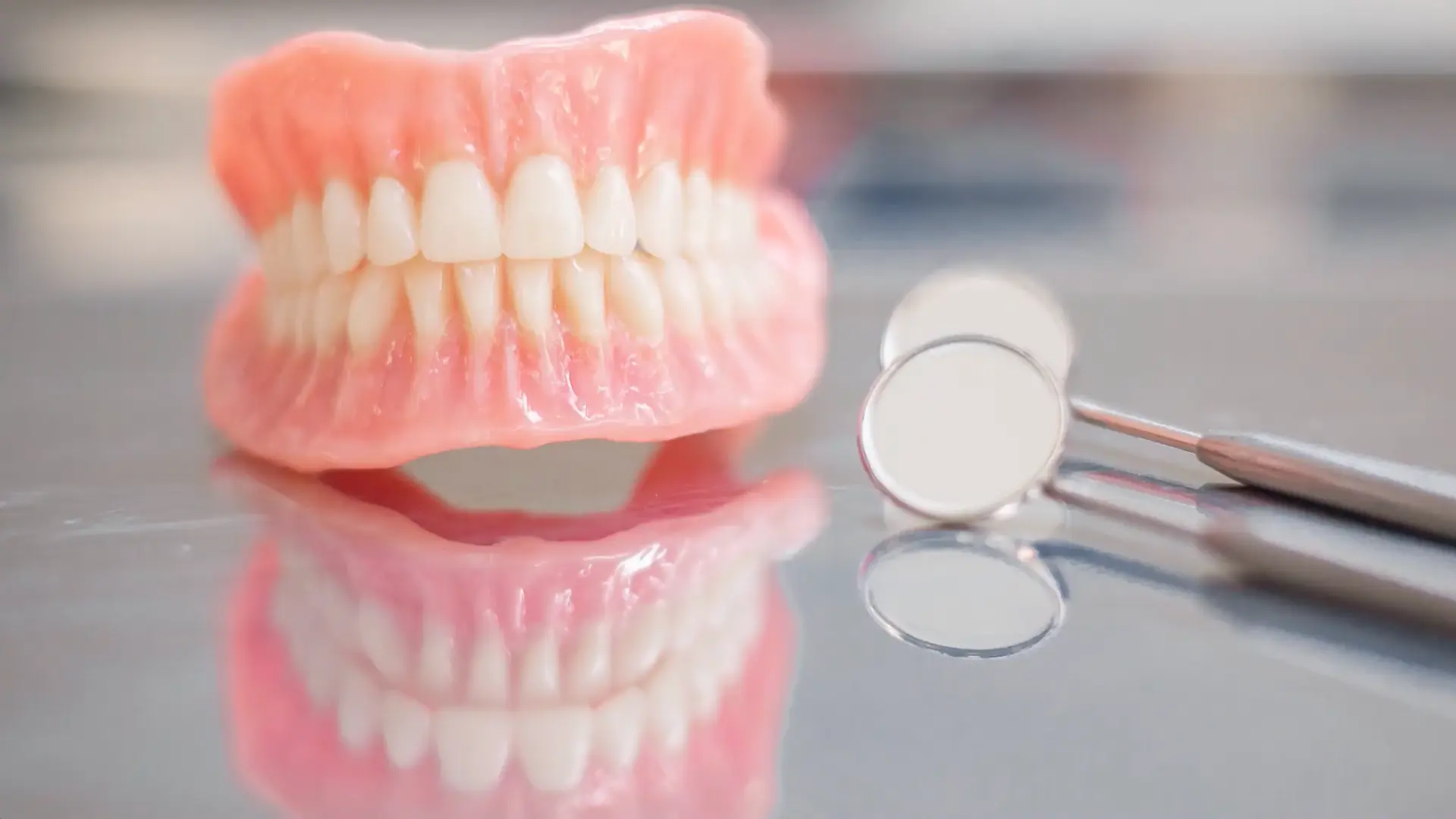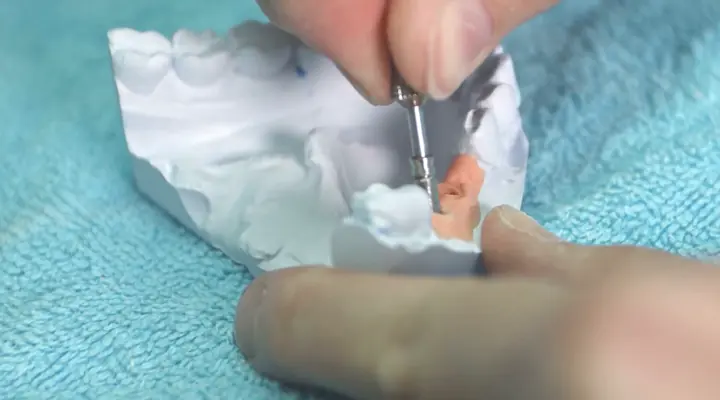Dentures in Rock Hill, SC — Designed for Comfort, Confidence, and a Natural Smile
Missing teeth or dealing with a loose, uncomfortable denture can affect how you eat, speak, and feel about your smile. At River District Smiles, we design dentures that look natural and feel stable for everyday life. Each denture is crafted using digital impressions, modern materials, and doctor-guided adjustments so you get a solution that fits your mouth—not a “one size fits all” appliance.
Whether you’re getting dentures for the first time or replacing a set that no longer feels right, our team is here to guide you through every step with clear communication, personalized recommendations, and long-term support.
Why Patients Choose River District Smiles for Dentures
Dentures aren’t just about replacing teeth—they’re about restoring confidence, function, and quality of life. We see many patients each year who need full or partial dentures, and we take a personalized approach to each design.
Here’s what sets our care apart:
- Digital impressions for improved accuracy
- Smile design based on your facial shape, bite, and preferences
- Modern materials that mimic natural teeth and gums
- Custom tooth shades and shapes chosen with you
- Follow-up adjustments to ensure long-term comfort
Many patients come to us after years of frustration with loose or uncomfortable dentures. Our focus is to give you a \ that feels secure, looks natural, and helps you return to normal eating and speaking without constant worry.
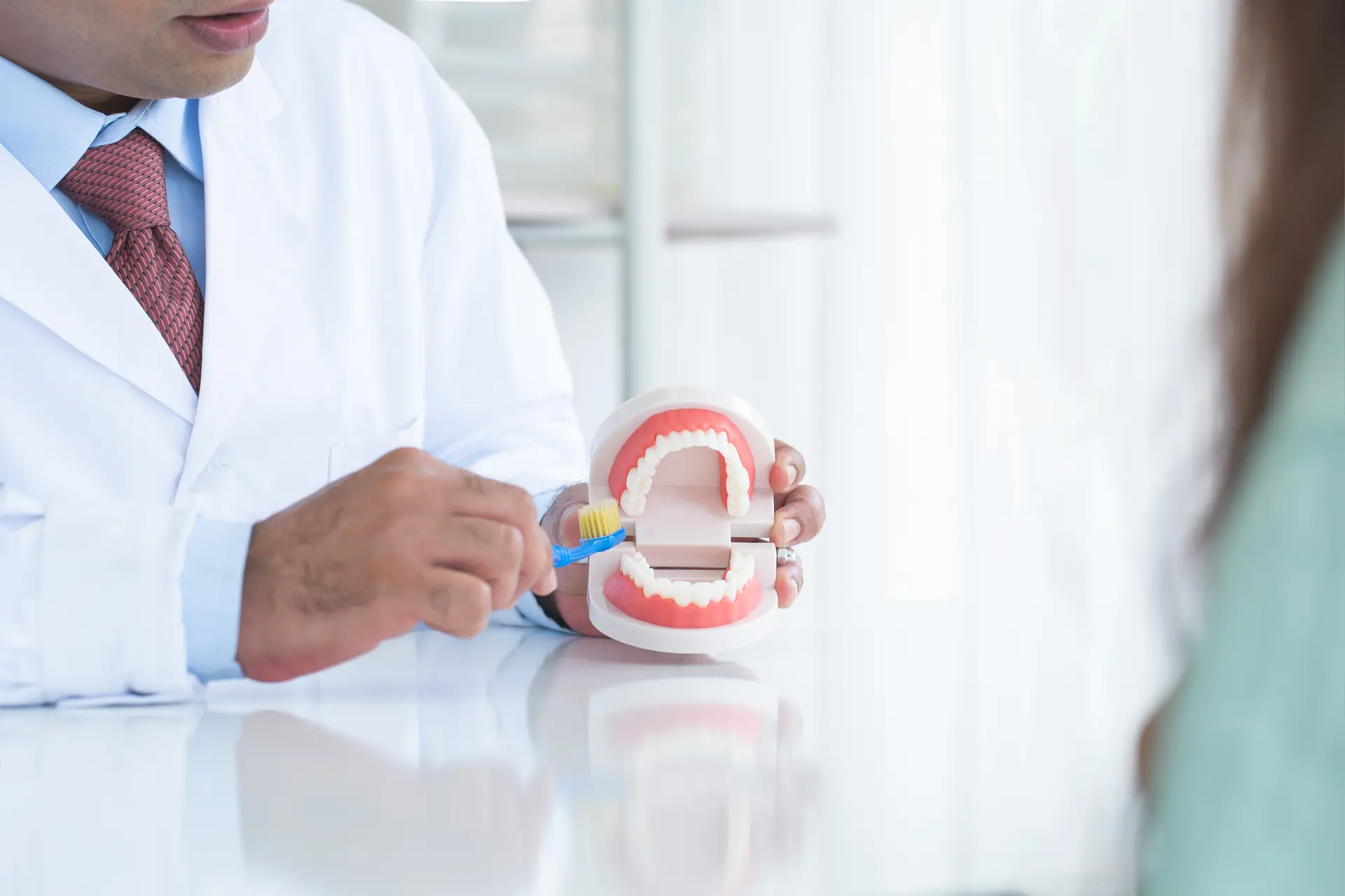
Your Denture Options at River District Smiles
Complete Dentures
Complete dentures are used when all teeth in an arch are missing. We design yours to support the lips and cheeks, restore natural facial contours, and create a balanced bite. Our dentures are lightweight, durable, and shaped to create a confident smile that complements your features.
Partial Dentures
Partial dentures are ideal when some natural teeth remain. They attach securely to healthy teeth and fill in the spaces left by missing ones. We customize the shape, color, and fit so your partial denture blends seamlessly with your natural smile.
Implant-Supported Dentures
If you’re looking for the most stable and comfortable option, implant-supported dentures may be the right choice. Dental implants act as anchors, holding your denture firmly in place. This option prevents slipping, improves chewing strength, and helps preserve jawbone structure.
We’ll help you compare all three options clearly so you can make the choice that fits your goals, lifestyle, and budget.
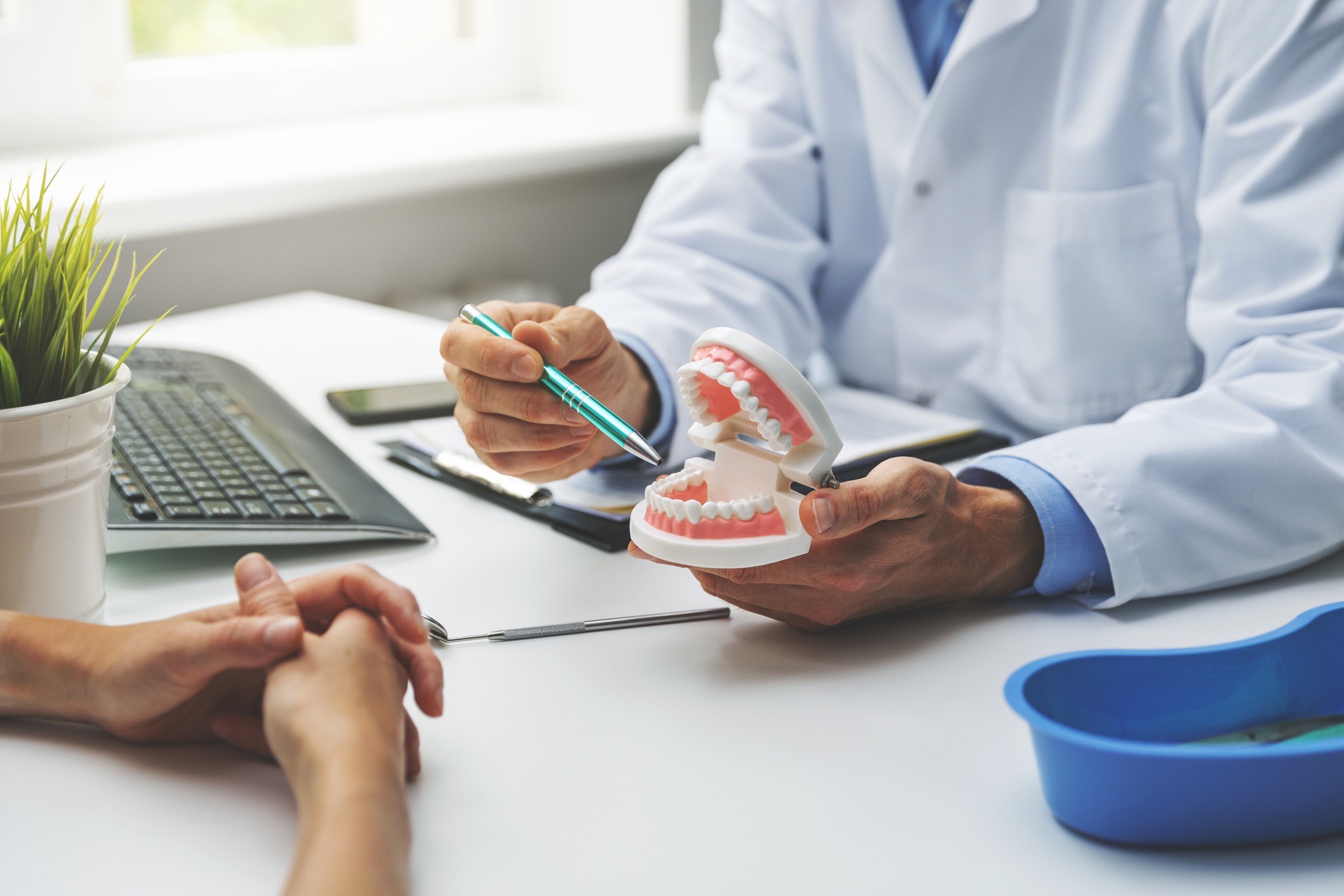
How Dentures Work
Dentures are custom-made prosthetic teeth that replace missing teeth and restore both function and appearance. Modern dentures are nothing like the bulky, uncomfortable devices you may picture. Advances in digital imaging, suction-enhanced design, and flexible materials make today’s dentures more comfortable and realistic than ever.
During your consultation, we assess:
- Gum and bone health
- Bite alignment
- Facial proportions
- Any existing sore spots or areas of discomfort
- Your personal goals and expectations
From there, we recommend a denture style that fits your long-term needs.
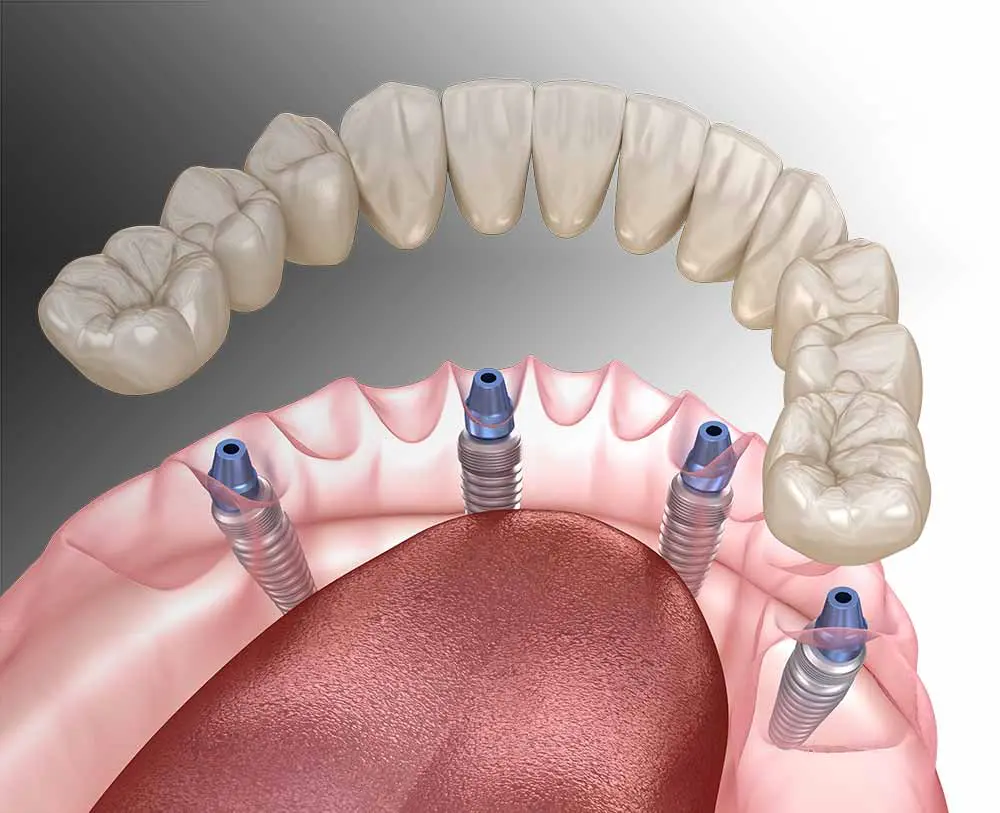
What to Expect: Our Denture Process
Getting a well-fitting denture is a step-by-step process designed to ensure accuracy and comfort. Here’s how we do it:
1. Comprehensive Exam & Digital Scans
Your journey begins with digital impressions and a full evaluation of your oral health. These scans allow us to design your denture with precision and avoid distortions common with older mold techniques.
2. Smile Design & Tooth Selection
You’ll work with our team to choose tooth shade, shape, and overall appearance. This step allows you to personalize your new smile so it looks both natural and flattering.
3. Try-In Appointment
We create a wax model of your denture to preview fit, bite, and aesthetics. This is your opportunity to see how your new smile will look and feel before the final version is made. We make any adjustments needed at this stage.
4. Final Fitting
Your completed denture is crafted from high-quality materials. We ensure it fits securely, aligns properly when you bite, and supports your face naturally.
5. Follow-Up Adjustments
It’s normal for your mouth to adapt over time. We schedule follow-up visits to fine-tune comfort, eliminate sore spots, and help you adjust smoothly.
Traditional Dentures vs Implant-Supported Dentures
Choosing the right denture depends on your goals, budget, and long-term oral health. This comparison can help you understand the key differences:
|
Feature |
Traditional Denture |
Implant Denture |
|
Stability |
Moderate |
Excellent |
|
Comfort |
Good |
Best |
|
Chewing Strength |
Limited |
High |
|
Bone Preservation |
None |
Yes |
|
Adhesives Needed |
Sometimes |
No |
|
Longevity |
Good |
Excellent |
If stability and long-term comfort are priorities for you, we may recommend implant-supported dentures during your consultation.
Costs, Insurance, and Financing
Denture costs vary depending on the type of denture, materials used, and whether implants are part of your treatment plan. We’ll go over all costs in detail before beginning any procedure so you feel comfortable and fully informed. Our team also helps you understand your insurance benefits and available financing options.
Patient Testimonial
Kathleen Shelton
EVERYONE WAS FANTASTIC.
AND REALLY REALLY PROFESSIONAl. Everyone in this office has been a blessing and awesome with helping me through my journey with my dentures. They gave me my smile back. HAVE FOUND MY DENTIST FOR LIFE.. 🎯 …
Get Your Smile Back! Schedule Your Denture Consultation Today
If your current denture feels uncomfortable or you’re ready to explore a new, more natural-looking option, we’re here to help. Contact River District Smiles today to schedule your consultation and start your journey toward a confident, comfortable smile.

